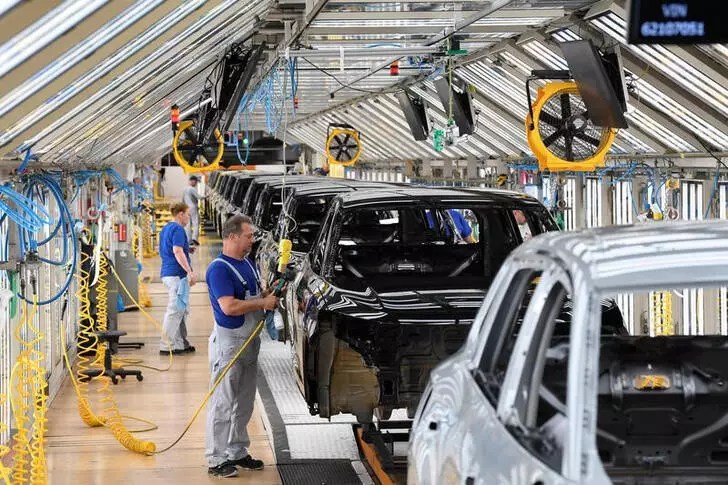The recent news that Volkswagen is considering closing factories in Germany for the first time raises concerns about the mounting price pressure the carmaker faces from Asian rivals. This move represents a significant shift in strategy and marks the first major clash between Chief Executive Oliver Blume and the influential unions at VW. The potential closure of one large vehicle plant and one component factory in Germany has sparked fierce resistance from the works council, highlighting the challenges ahead for the company.
The works council at Volkswagen has vowed to resist the executive board’s plans for factory closures, setting the stage for tense negotiations in the coming days. With Chief Financial Officer Arno Antlitz and Volkswagen brand chief Thomas Schaefer set to address staff at a works council meeting, it is clear that tensions are running high within the company. The involvement of IG Metall, a powerful union that has thwarted previous attempts at major changes, further complicates the situation for VW’s management.
The decision to consider factory closures comes as Volkswagen faces increasing pressure to streamline its operations and reduce costs in order to compete in the rapidly evolving automotive industry. The company’s plans to target 10 billion euros in savings by 2026 reflect its efforts to adapt to the shift towards electric cars and address the challenges posed by new rivals in the market. With the job security programme set to end, Volkswagen is bracing for significant changes that will impact its workforce and production facilities.
Volkswagen’s struggles are not isolated, as the company grapples with a difficult economic environment, growing competition in Europe, and declining competitiveness in the German economy. The need for more decisive action to address these challenges was underscored by CEO Oliver Blume, who emphasized the importance of taking bold steps to ensure the company’s survival. The falling stock value of Volkswagen in recent years and the emergence of new competitors in key markets like China further highlight the urgency of the situation.
The potential factory closures at Volkswagen pose a broader challenge for Germany’s economy and political landscape, as the country grapples with the consequences of years of economic stagnation and structural change. The decision to cut costs and streamline operations could have far-reaching implications for industrial policy and economic growth in Germany. The need for increased government intervention and support for the automotive industry is becoming more evident, as companies like Volkswagen face mounting pressure to adapt to changing market conditions.
The decision by Volkswagen to consider factory closures in Germany reflects the growing challenges facing the company and the broader automotive industry. As VW grapples with the need to reduce costs, streamline operations, and adapt to the shift towards electric vehicles, it is clear that bold action is required to secure its future. The impact of these cost-cutting measures will be felt not only within the company but also across Germany’s economy and political landscape, underscoring the need for a coordinated response to ensure the long-term sustainability of the automotive sector.


Leave a Reply